#literary parallels
Text





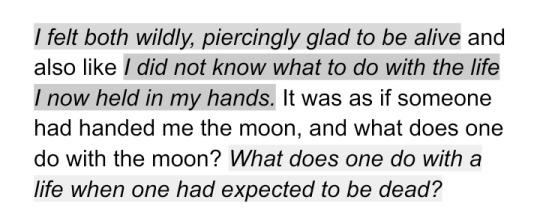

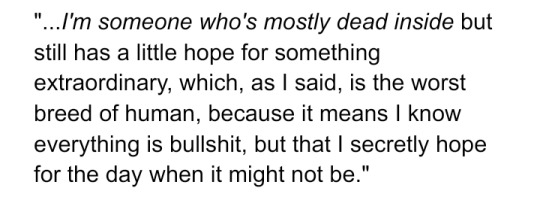


{David Levithan/ Margaret Atwood, Alias Grace, 1996/ Mary Shelley, "Mathilda," Originally Published c. October 1819/ Lidia Yuknavitch, "The Chronology of Water: A Memoir"/ Hans Christian Andersen, The Little Mermaid/ Marya Hornbacher, Waiting/ Haruki Murakami, Blind Willow, Sleeping Woman/ Nick Miller/ Nikki Giovanni, The Collected Poetry, 1968-1998/ From the Book: Healing After Loss: Consoling The Bereaved by Imam Jalal al-Din al-Suyuti}
#web weave#web weavings#web weaving#literary parallels#parallels#book and literature#arabic literature#books and literature#literature#lit#writers and poets#poetry#books#dark academia poetry#dark acadamia quotes#poets on tumblr#poem#poets corner#poems on tumblr#dark academia#dark academia aesthetic#dark academia quotes#bibliophile#excerpts#fragments#death and dying
4K notes
·
View notes
Text



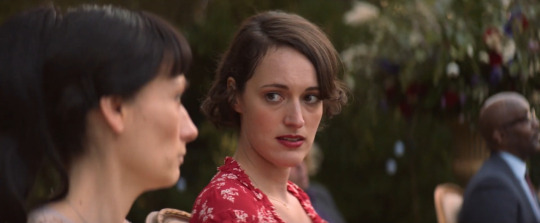


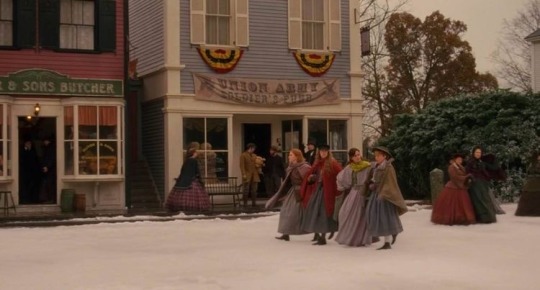
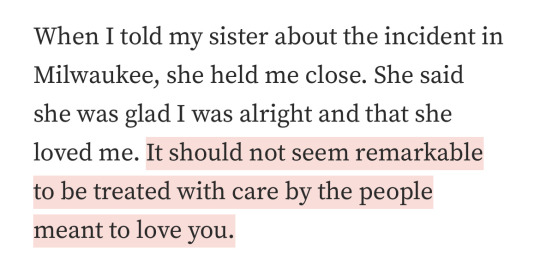


i was born knowing you.
lisa see / fleabag (2016-2019) / unknown / the reynolds pamphlet, lin-manuel miranda / my sister’s keeper, jodi picoult / little women (2019) dir. greta gerwig / mommy issues, joan tierney / sisters, holly warburton / two sisters on the terrace, pierre-auguste renoir
#literature#quotes#web weaving#web weave#art parallels#parallels#literary parallels#sisters#on sisterhood#fleabag#phoebe waller bridge#hamilton#lin manuel miranda#jodi picoult#on sisters#siblings#renoir#pierre auguste renoir#joan tierney#wish queue were here
5K notes
·
View notes
Text



cardio room, young women’s christian association by karen solie / interview conducted through the man-eater's throat by george david clark / stay soft by mitski
2K notes
·
View notes
Text




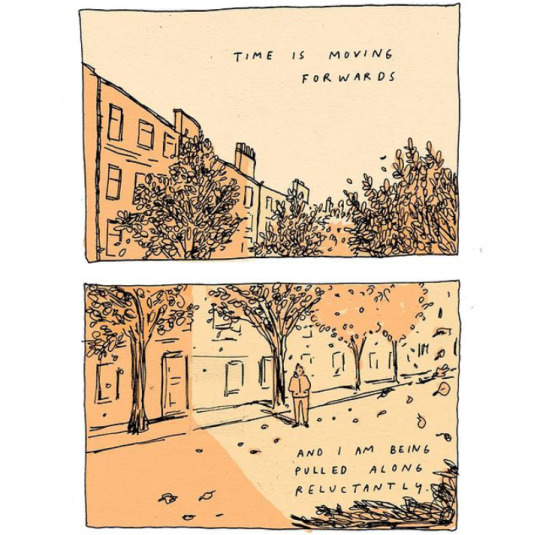




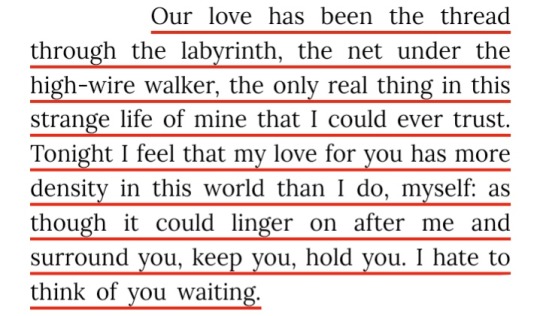
Time is nothing.
Audrey Niffenegger, The Time Traveller's Wife //Illustration by Lesley Imgart
#quotes by audrey niffenegger#the time traveler's wife#lesley imgart#leaving#staying#web weaving#literary parallels#parallelism#parallels#dark academia#light academia#classic literature#literature#books & libraries#english literature#chaotic academia#romantic academia#romanticism
10K notes
·
View notes
Text




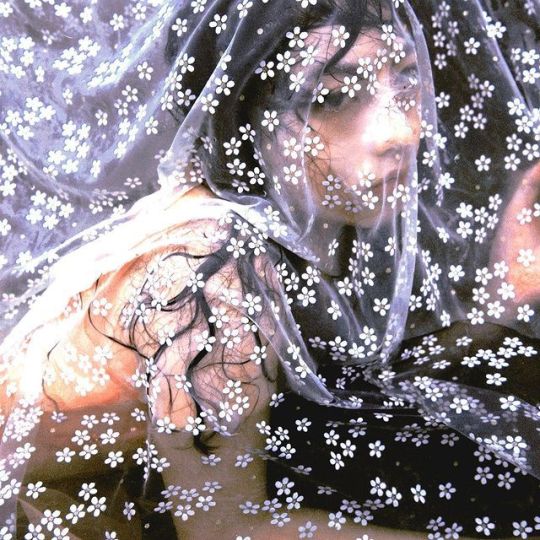




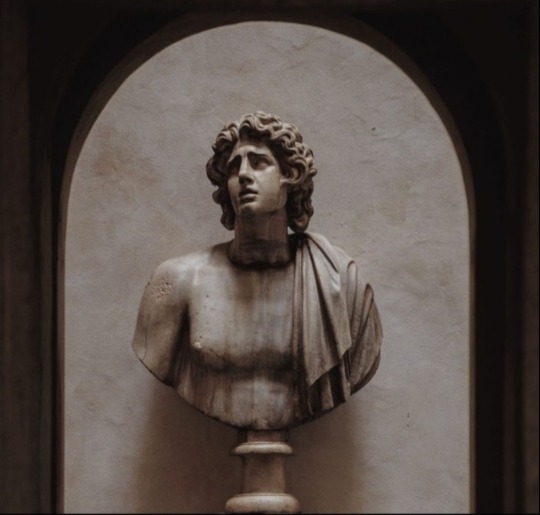
shattered
Mieko Kawakami, Breasts and Eggs, tr. by Sam Bett and David Boyd // Louise Glück, Adult Grief // Horace Vernet, The Maiden’s Lament (oil on canvas) // Mona Sa’udi, “When the loneliness of the tomb,” from Women of the Fertile Crescent: An Anthology of Modern Poetry by Arab Women, tr. by Kamal Boullata // Photography by 西游朽 (xiuxiukong) // Mark Strand, "Keeping Things Whole" from Selected Poems by Mark Strand, 1979 // Clarice Lispector, A Breath of Life, 1978 (paraphrased) // Graveyard statue in Coburg, Germany // Anaïs Nin, Fire: From “A Journal of Love”: The Unexpurgated Diary of Anaïs Nin (paraphrased) // Bust of Alexander the Great, found in Palazzo Massimo courtyard, Lancellotti, Rome
#web weaving#web weave#literary parallels#parallels#comparative#alone#isolated#isolation#dissociation#dissociated#depersonalization#lonely#depressed#depression#no friends#void#a void#sad#sadness#sorrow#ruined#broken#quote#quotes#hopelessness#pessimistic#nihilistic#cynical#cynicism#dark acadamia aesthetic
645 notes
·
View notes
Text
The parallels between Beren & Lúthien and Frodo & Sam have been written about and spoken of plenty of times. But I’ve not yet found a full list, point by point, of each parallel. That I shall remedy.
These are listed in the chronological order of Beren & Lúthien’s story. The chronologies of the stories do not match up exactly, since the order of parallel events differs between each story. (For instance, 11 and 12 occur before 6–9 in the hobbits’ story, but after 6–9 in the Man and Elf’s story.)
Lúthien dances for joy in the woods, and Beren watches. / Sam dances for joy to warm in the sun naked on the Barrow-downs, and Frodo watches.
Beren is tasked to embark upon a perilous quest that involves keeping the Silmaril away from Morgoth and Sauron; the Silmaril is coveted by the sons of Fëanor. / Frodo is tasked to embark upon a perilous quest that involves keeping the Ring away from Sauron; the Ring is coveted by Gollum.
By completing the quest, Beren will win Lúthien’s hand and a chance for them to live in peace together. / By completing the quest, Frodo will ensure Sam’s safety and a peaceful land in which they can live.
Beren encounters an Elf, Finrod, who befriended his father, Barahir. / Frodo encounters an Elf, Elrond, who befriended his father figure, Bilbo.
Beren is imprisoned in Sauron’s dungeons. / Frodo is imprisoned in Sauron’s tower.
Lúthien uses her cloak to shield herself and scare off her enemies in Sauron’s fortress. / Sam uses the Ring’s power to shield himself and scare off his enemies in Sauron’s fortress.
Lúthien sings a song within Sauron’s fortress and locates Beren when he sings in response, believing her voice is no more than a dream. / Sam sings a song within Sauron’s fortress and locates Frodo when he sings in response, believing Sam’s voice is no more than a dream.
Upon finding Beren in the dungeon, Lúthien believes for a moment that he is dead and darkness falls upon her in her grief. / Upon finding Frodo stung by Shelob, Sam believes for a moment that he is dead and darkness falls upon him in his grief.
Beren and Lúthien are aided by Huan. / Frodo and Sam are aided by the Fellowship.
Beren and Lúthien are attacked by the sons of Fëanor, who seek to prevent them from completing their quest. / Frodo and Sam are attacked by the Nazgûl and by Gollum, all of whom seek to prevent them from completing their quest.
Beren is wounded in his upper body (chest) by Curufin’s arrow, but is healed by a leaf found by Huan, with help from Lúthien. / Frodo is wounded in his upper body (shoulder) by the Witch-king’s knife, but is healed by athelas found by Aragorn, with help from Sam.
Beren tries to sneak away to complete his quest on his own for the sake of Lúthien’s safety, but Lúthien catches up to him and vows to go with him, regardless of what may happen to them, and Beren gives up on talking her out of it, realizing they share a fate. / Frodo tries to sneak away to complete his quest on his own for the sake of Sam’s safety, but Sam catches up to him and vows to go with him, regardless of what may happen to them, and Frodo gives up on talking him out of it, realizing they are meant to go together.
Beren and Lúthien disguise themselves as Draugluin and Thuringwethil to infiltrate Morgoth’s land. / Frodo and Sam disguise themselves as Orcs to infiltrate Sauron’s land.
Lúthien uses her divine power to get herself and Beren past Carcharoth. / Sam uses the power of Eärendil’s light in his hand to get himself and Frodo past the Two Watchers.
Beren uses the power of the Silmaril to defy and intimidate Carcharoth. / Frodo uses Eärendil’s light, taken from the light of that very Silmaril, to defy and intimidate Shelob; he also uses the power of the Ring to defy amd intimidate Gollum.
Carcharoth bites off Beren’s hand with the Silmaril still clasped in it, an act which drives him into further madness and gives Beren the title “Beren the One-Handed.” / Gollum bites off Frodo’s finger with the Ring still on it, an act which drives him into further madness and gives Frodo the title “Frodo of the Nine Fingers.”
Gwaihir and Landroval rescue Beren and Lúthien from Angband. / Gwaihir and Landroval rescue Frodo and Sam from Mount Doom.
Beren fails to literally bring back the Silmaril due to the loss of his hand, but his quest is still completed indirectly, as his hand indeed holds the jewel. / Frodo fails to literally destroy the Ring due to its indomitable will that leads to the loss of his finger, but his quest is still completed indirectly, as his actions bring the Ring to its inevitable doom.
Carcharoth’s poison almost kills Beren in the aftermath, but he is healed by Huan. / Shelob’s poison almost kills Frodo in the aftermath, but he is healed by Aragorn.
Beren and Lúthien dwell peacefully for a time in the greenery outside Doriath, and don’t want to leave, but eventually return to Lúthien’s home so that she can check on the wellbeing of her father Thingol, as Beren does not want to keep her away from her fellow Elves. / Frodo and Sam dwell peacefully for a time in the greenery of Ithilien and later in Minas Tirith, and don’t want to leave, but eventually return home so that Sam can check on the wellbeing of his father, the Gaffer, as Frodo does not want to keep Sam away from their fellow Hobbits.
Thingol despairs back home in Doriath, worrying about his daughter Lúthien. / The Gaffer despairs back home in the Shire, worrying about his son Sam.
When they return from their Quest, Beren and Lúthien find new danger has come to Doriath via Carcharoth, and lead a defense of Doriath against him. / When they return from their Quest, Frodo and Sam find new danger has come to the Shire via the Ruffians, and lead a defense of the Shire against them.
Beren’s wounds force him to be separated from Lúthien as he dies, but he waits in the Halls of Mandos for her to join him. / Frodo’s wounds force him to be separated from Sam as he leaves Middle-earth, but he waits in Aman for Sam to join him.
The Valar pity Beren and Lúthien’s suffering and offer Lúthien a choice to be with Beren again (a mortal life). / The Valar pity Frodo and Sam’s suffering and offer Sam a choice to be with Frodo again (passage into the West).
Lúthien chooses to forsake the fate of her own kind, immortality in Valinor, to spend the rest of her lifetime with Beren in the green isle of Tol Galen. / Sam chooses to forsake the fate of his own kind, rest in the tilled earth of the Shire, to spend the rest of his lifetime with Frodo on the island of Tol Eressëa.
Lúthien’s son Dior is known as “the beautiful.” / Sam’s daughter Elanor is known as “the Fair” for her Elvish-like beauty.
No man ever saw Beren or Lúthien again, and nobody in Middle-earth knows when or where exactly they finally died. / No hobbit in the Shire ever saw Frodo or Sam again, and nobody in Middle-earth knows when or where exactly they finally died.
Tolkien, my dear friend and idol, you sure knew how to write a love story to end all love stories. And you did it twice. Whether you intended to do it twice or not, you did.
Bravo, good sir. Bravo.
#lotr#jrr tolkien#samfro#beren and luthien#lord of the rings#lotr books#the silmarillion#frodo x sam#beren x luthien#frodo baggins#samwise gamgee#beren erchamion#luthien tinuviel#the valar#literary parallels#morgoth#sauron#sam x frodo#samfrodo#silmarils#the one ring
175 notes
·
View notes
Text

mahmoud darwish, in the presence of absence

natalie wee, practice makes perfect (for marie kakhniashvili)

richard siken, boot theory
#web weaving#literary parallels#parallels#poetry#quote#quotes#poem#natalie wee#mahmoud darwish#richard siken#river#water#x#w
4K notes
·
View notes
Text
Poe’s Annabel Lee in TLT #1
“Annabel Lee” is the last poem E. A. Poe composed, and arguably one of his most famous ones. It is in many ways, typical of one would consider a Poe poem, featuring thematics such as the death of a beautiful young woman, love, and grief. Thematics and subjects that are ever-present in the tlt book series, and I will do my best to dissect in this post.
With a superficial read of the books, most would garner the rather obvious parallel between John Gaius and Alecto on the one hand, and the hero of the poem and Annabel Lee, on the other. John himself is not particularly mindful or discreet of the analogy he himself creates. And he has no need to, seeing as he is the only one that remembers the world from before. And I think it is terribly beautiful and utterly devastating, in a poetic irony sort of way, that a comparison so obvious as this, a hallmark of American poetry would go completely unnoticed in the new world that John has built in his image, for he is the only one who truly knows, the only one who remembers.
Another more subtle parallel, I feel could be drawn between Gideon and Harrow, and the poem’s heroes. Though, I must admit it is perhaps a bit of a stretch. I might make another post abt that. But for now, let’s dive in the magical world of Annabel Lee, and dissect the poem, bit by bit.
For all our literature geeks out there, I will just point out that the poem is a narrative poem, and it uses a few different rhyme schemes, and meters, with both anapests and iambs being present (Shout out to all the lovely people who are familiar with iambic fifteen-syllable lines and have been haunted by them).
I will now start with a general feeling of the poem before jumping into the details. From the start, Annabel Lee feels like a fairytale, with a hopeful start that alludes to the fairytale opening of Once upon a time… However, as the poem progresses this hopeful emotion slowly devolves to something eerie, ominous, and desperate. Something dark, cynical, and terrifying. And this is where we will draw our first parallel.
The Earth is dying. That much we can garner. There is however a man, that loves her more than anything else. That desperately, with his clumsy, human, imperfect, selfish way wants to save her. And thus, she bestows him with a gift, hoping that he would indeed help. It does make for a nice fairytale start of the story does it not? Unfortunately, however, this is not how it evolves, for John inevitably fails to do what he has been tasked with, despite all his love for her. And he kills her. She is now trapped in a human-like body of John’s design, a body that in its design is proof he could not escape the industrialism he so loathed, and she feels like a monstrosity. And the story only gets worse from then on, with her inevitable banishment in the Tomb for what seems to be an eternal sleep at the behest of John’s Lyctors.
Both takes I feel follow the same pattern of emotional development, regarding both their content of the text and the emotional rollercoaster they inspire in the reader.
It was many and many a year ago
In a kingdom by the sea
That a maiden there lived whom you may know
by the name of Annabel Lee
10.000 years ago, to be precise, in a water-filled planet called Earth. See that fairytale tone? Also, I would like to point out once more, that saltwater references. Salt water, the sea, Θάλασσα as a source of life and energy is a strong thematic that repeats itself multiple times in Muir’s books, and this is no exception. And the fact that Earth is a planet with a lot of saltwater, and in this instance serve both the kingdom and the personification of the maiden is an apt usage of the theme. Moreover, in these introductory lines, we are immediately presented with what will be the central figure of the poem, Annabel Lee, an alleged maiden. A noun that alludes to a young, beautiful woman. (Alecto is arguably in the form that John gives her, also a beautiful woman, despite the Lyctors finding her monstrous. I am of the opinion that what unsettled them was that Alecto was both too bizarre, too other, too immense to be fully understood and contained within so plain a physical vessel, and way too human to be clearly marked as different and other. One look at John’s creation and they would immediately see that alien strange cavalier, and their closest friends in her quirks and mannerisms, all at once.)
And this maiden she lived with no other thought
than to love and be loved by me
I was a child and she was a child
In this Kingdom by the Sea
I need not point out I feel the thematic of an impossibly powerful love that is introduced in these lines, the desperate love that John harbored for his dying home planet, and the equally desperate love Alecto harbors for the man she thought would save her. Even when he betrays her, one of the things she says to John immediately after he confines her in the human form is I love you. (“What else...” “I love you”, “…You said that too.”) And of course, the notion that they were both “children”, inexperienced with little idea of what they were doing in their despair– most certainly not untrue. A line that heavily points to one of Pyrrha’s most iconic lines in Nona the Ninth “We were children - playing in the reflections of stars in a pool of water... Thinking it was space.” And they were children in comparison to what they are now. Inexperienced and stumbling through their first steps in the chaos that love is.
But we loved with a love that was more than love—
I and my Annabel Lee;
With a love that the winged seraphs of heaven
Coveted her and me.
Now these lines tie a bit more loosely to tlt. The love that these children so to speak harbor is not any less real because of their youth and inexperience. On the contrary the aftereffects of Alecto’s and John’s love are very much real and rather disastrous for the solar system. And such love, apparently inspired jealously. In the poem in the usually benign and protective guardians that angels are, and in the books, in the Lyctors. And I think that it is at this point that the thematics might or might not deviate from the books. Because one might say, that the Lyctors, that I feel are in these lines represented by the angelical figures, could not possibly be jealous of Alecto, and her relationship with John, could they? They find her monstrous and wrong, a hindrance, so what could they be jealous about? A lot of things, I believe. For we do see in the books the extends of the affections that John harbors for Alecto, even though his little man not responsible for the consequences of his actions, behavior. In the beginning John explains everything to Alecto through his eyes, takes her everywhere, and does not part with her. He harbors this love and kinship for his strange cavalier, or the soul of the Earth that chose him to save her, that it seems to overshadow even the depth of emotion he feels for his Lyctors. For he cares for and loves Augustine and Mercy and Gideon and Cassiopeia, Ulesses and Titania, but I feel that the love he has for them is but a speck in the ocean of the emotional turmoil that Alecto inspires in him. So they cover them for a love they themselves cannot feel.
And what would you do, how would you feel, if the man you gave everything up for, the man you uprooted your life for, the man you condemned the planet and the billions of lives on it for, barely had eyes for you? If despite all you had done for him and all you did on a daily basis to keep this impossible empire intact, all he ever did was parade his monstrous, weird, wrong, guard dog around? And no matter what you did you could never get rid of her, for she was everywhere, and she was his, and he never could care for you as his friend, as a companion, an advisor, a pillar of the empire, his hand and gesture and manifestation of his will with nearly as much love and devotion he showed her? What if you felt that she was a distraction keeping him from building the empire he was meant to build?
And this was the reason that, long ago,
In this kingdom by the sea,
A wind blew out of a cloud, chilling
My beautiful Annabel Lee;
So that her highborn kinsman came
And bore her away from me,
To shut her up in a sepulchre
In this kingdom by the sea.
The angels, not half so happy in heaven,
Went envying her and me— Yes!—that was the reason (as all men know, In this kingdom by the sea)
That the wind came out of the cloud by night,
Chilling and killing my Annabel Lee.
Given my ramble above I will not expand anymore on how the Lyctors would see Alecto at least as a hindrance to the empire, and at most would loathe her, for despite never having sacrificed as much as they had – in their eyes at least - she had John’s attention, devotion, respect and -frankly obsessive- love. What follows now, is an abrupt change of tone (gone are the fairytale notions) and an allusion to the Tomb, even though we know that John himself put her in there and not the other Lyctors. But we also know that the other Lyctors were on a surface level, the driving force of that decision. He sealed her away to appease them. And at least in John’s little man mentality he could insist that it was for them and their insistence that he sealed her away. And he feels the loss of Alecto, his Annabel Lee. Furthermore, Annabel Lee has been chilled, and while the interpretation in the poem can be a bit vague, we know that Alecto is held in a freezing ice coffin practically. Frozen in time in the subzero temperatures of the Ninth.
But our love it was stronger by far than the love
Of those who were older than we—
Of many far wiser than we—
And neither the angels in heaven above,
Nor the demons down under the sea,
Can ever dissever my soul from the soul
Of the beautiful Annabel Lee:
Lyctorhood ala John. Binding your soul to the soul of a planet, to the soul of Earth. It doesn’t get any stronger and up and personal than that. A love and bond that is stronger than all he knows I don’t think there is much of anything anyone can do to sever Alecto’s connection from John. It is presented as one of the big issues in the book. How to kill God when he has bound his life force to a bloody planet, who seems to be rather murderous on the best of days. I quite look forward to seeing how that moves forward. For the hero of our poem, don’t know about John I must admit, seems to be certain nothing can tear their souls apart from each other.
For the moon never beams, without bringing me dreams
Of the beautiful Annabel Lee;
And the stars never rise, but I feel the bright eyes
Of the beautiful Annabel Lee;
And so, all the night-tide, I lie down by the side
Of my darling—my darling—my life and my bride,
In her sepulchre there by the sea,
In her tomb by the sounding sea.
The first two lines are pretty familiar, aren’t they? They should be because they are featured in the books. And they point that our hero meets Annabel Lee in his dreams. Aka the whole premise of Nona the Ninth, where Nona dreams of Alecto’s memories. As for the second set of lines, it seems to be an allusion to both John’s original bright golden eyes and the bottomless black pits of Alecto’s in which the stars never rise. As for the next line, my presumptive butt would like to take it as a bit of a foreshadowing. And a symbol. Yes, it does bring to mind John’s ascension in a sense with the lying on the ground theme, but the imagery here is much more serene, peaceful. So, I would like to believe it alludes to the end, where John will finally find peace and will lie besides Alecto for what could be their final rest. I do not remember if he lay beside her every night before, so correct me if I am wrong. But I would find it awfully poetic for them to do that as they set off Resurrection Vol2 or they reverse what they have done. And the last lines again allude to the Tomb and the sea. So, a random crazy idea is that they would both lie together in the Tomb and reset everything. And that the Tomb, their place of final rest or not, will be surrounded by water, so I have this crazy imagery that perhaps the Tomb containing Alecto’s and John’s lifeforce will be the center, the core, of the new planet that would resemble earth. And thus, an ocean shall rise surrounding the two, and they will eternally lay beside each other in the depths of a planet surrounded by saltwater.
All in all, both stories are stories of love in its all-consuming nature, that can be romantic and all encompassing, or take a darker turn and become obsessive and destructive. Of Love that can transcend the mortal realm and alter the laws of the world as we know it, inspiring dark feelings in what should be benevolent characters. And still that love transcends the obstacles that are set, for better or worse. Is it really as beautiful as it appears?
The stories also are stories of grief and loss that defines the one that gets left behind, grief that attaches itself to the person and doesn’t let go, overpowering sense and sensibility. That becomes the past present and future of our hero. That has no outlet and suffocates its bearer. (We have seen John’s darker days, where he is drunk and barely functional.)
Okay it is probably way too late, and I am way too tired, but it makes sense in my head. Next part of this one we will be analyzing possible comparisons between this lovely poem and Gideon and Harrow’s relationship.
Take care of yourselves.
#the locked tomb#tlt#tlt series#tlt spoilers#alecto the first#alecto the ninth#alecto tlt#john gaius#nona the ninth spoilers#harrow the ninth#tlt fandom#tlt theories#Annabel lee#poetry#literary parallels#literary analysis#John is Poe and A.L is Alecto#Can it be more obvious#tlt fan theory
103 notes
·
View notes
Text
I do not know if this one was mentioned already by anyone here but,
All the first names of the Greek Class are also names of the Royal Family. And I cannot stop thinking of Shakespeare's Wars of the Roses. Do you know how much Henry VI and Richard III connected in this one and how their relationship went... Especially how it was shown in the 2nd season of The Hollow Crown and that anime adaptation, Requiem of the Rose King?
What I am trying to point out is that Henry and Richard in TSH mirrored Shakespeare's characters (including their relationship) in utter opposites. When Henry VI was very saintly, Henry Winter isn't. Same goes with Richard III. Although, we are aware of Richard Papen's impulsive thoughts and how he almost acted like Tom Riddle for that one thing he'd done as a kid while recalling his childhood.
For some reason, even when Henry Winter and Richard Papen only knew each other for a short time, I can't help but confirm that somehow their friendship established that unbreakable bond, although it was not as established like Henry's relationship with Julian or Camilla, or even Bunny. Henry trusted Richard a great deal even though it can be considered aloof at some moments in the novel. He was even planning on giving his BMW to Richard as Mrs. Winter mentioned when he was in the hospital. I think Henry was already aware of Richard lying about his social status (all of the Greek Class were not even oblivious of that for sure as well) and yet, he stayed.
You can actually mirror their relationship with Henry VI and Richard III in Requiem of the Rose King, and the personalities I have mentioned beforehand. I do not know if Tartt did this on purpose by connecting it with Shakespeare's, but I think... she did. It paralleled somehow and everything went in sync merely because of their first names.
#my explanation isnt enough#i shall expound this when I write my 5 page analysis#mrs strange winter's analysis#the secret history#the wars of the roses#henry winter#henry vi#richard papen#richard iii#donna tartt#william shakespeare#wars of the roses#tsh#literary analysis#literary parallels
50 notes
·
View notes
Text

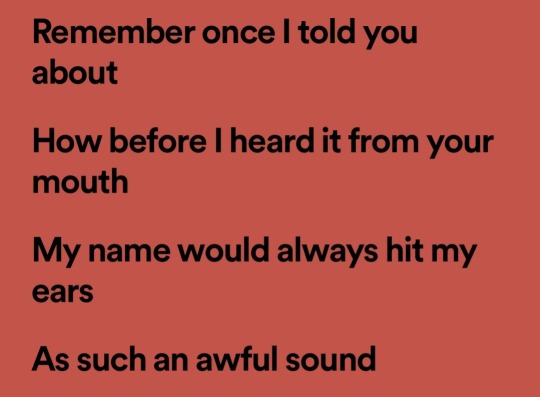





My name is safe inside your mouth
Madeline Miller-The song of Achilles//Hozier-First Time//Tennessee Williams//Jodi Picoult-Handle with Care//Florence and the Machine-Spectrum//Ada Limón-Bright Dead Things//Richard Siken-Crush
#hozieresque#hozier#florence and the machine#richard siken#madeline miller#the song of achilles#tennessee williams#ada limón#bright dead things#crush#parallels#literary parallels#jodi picoult#aesthetic#academia#dark academia
30 notes
·
View notes
Text
It’s not that I don’t get why people think Anthony Lockwood is like Kaz Brekker, but can I ask you to consider THIS:
Nikolai Lanstov
Let’s look at the facts…..
1. Smiles all the time? Check. It’s a top detail for both
2. Lying Charmer? Check. Lockwood “lies like a politician”, lives with a guy for a year - that guy never learns what’s in the spare room. Nikolai keeps a whole-ass second identity a secret from a whole-ass country and is actually a politician.
3. *ahem* complicated relationship with parents and siblings? Check
4. Has a supernatural gift but the scariest thing about them is how well they read people and use them? Nikolai wins in the end because he gets what people will do. He uses his mind and that’s why the Darkling gives him the Demon treatment - to take that off the board. Lockwood digs at people and then smoothes it all away again depending on what he wants/needs. They play people for strategy, necessity, and sometimes for fun and that’s brilliant and terrifying
5. Somehow simultaneously has No Money and All the Money? Lockwood has a massive house in Central London, posh manners, signs of Family Money Tm -runs his business from home and has soooooo much mortgage. Nikolai is a king living in a palace - so broke he might legit lose a war because of the No Money
6. Absolute simps over their much more powerful wives? Hell yes and we’re here for it.
Lucy-Zoya parallels?
George-David parallels?
Holly-Genya?
If anything the Crows fit more with Flo……
Who’s with me?????
#lockwood and co#shadow and bone#grishaverse#rule of wolves#nikolai lantsov#anthony lockwood#lucy carlyle#zoya nazyalensky#george karim#george cubbins#david kostyk#flo bones#kaz brekker#literary parallels#character parallels#character design#all the good tropes#tropes#i just think it’s neat#you cannot tell me that Nikolai and Lockwood wouldn’t spend 10 seconds together and both think “I can use him#crossover#Nikolai and Zoya would adopt these disasters so fast#the disasters would only get BIGGER#my god the chaos#I do see the Kaz comparison to be clear and it’s still a good one#genya safin#Holly#lucy x lockwood#nikolai x zoya
227 notes
·
View notes
Text



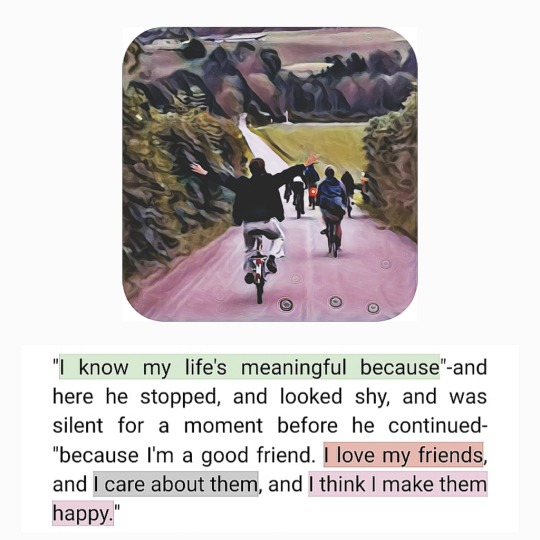
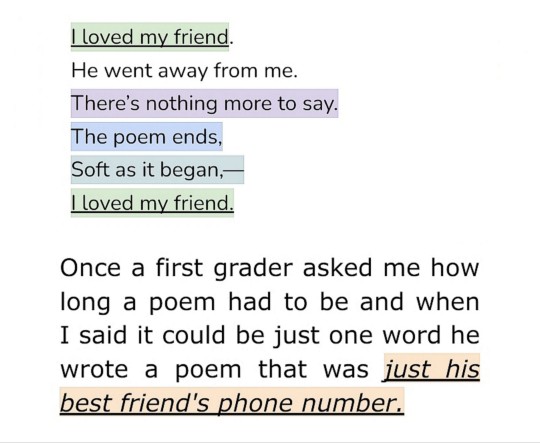
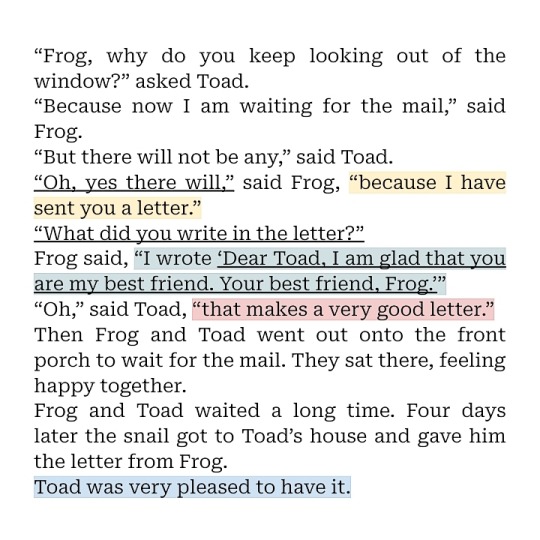

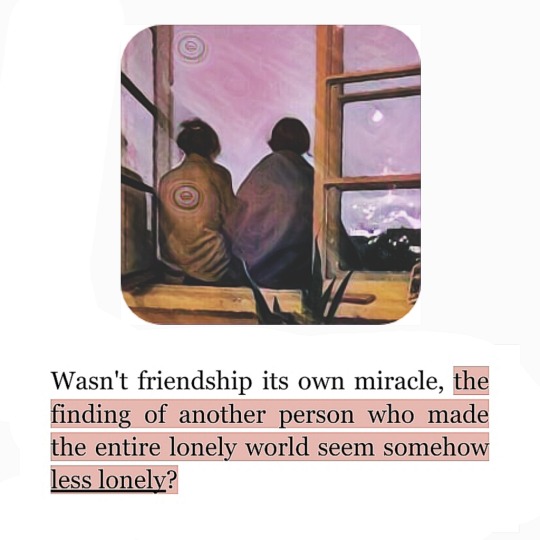
{Ryan O'Connell/ Bell Hooks/ Unknown/ Fredrik Backman, Us Against You/ Oscar Wilde/ Hanya Yanagihara, A Little Life/ Langston Hughes/ Heather Christle/ Arnold Lobel, The Letter/ Tumblr User: @whitealbum (x)/ Hanya Yanagihara, A Little Life/ Hanya Yanagihara, A Little Life}
#web weave#web weavings#web weaving#parallels#literary parallels#friendship#friendship quotes#writers and poets#dark academia poetry#poetry#dark acadamia quotes#books#poem#poets corner#poets on tumblr#poems on tumblr#bibliophile#classic literature#english literature#literature#classic lit quotes#lit quotes#classic academia#library aesthetic#books & libraries#dark academia#a little life#dark academia aesthetic
2K notes
·
View notes
Text

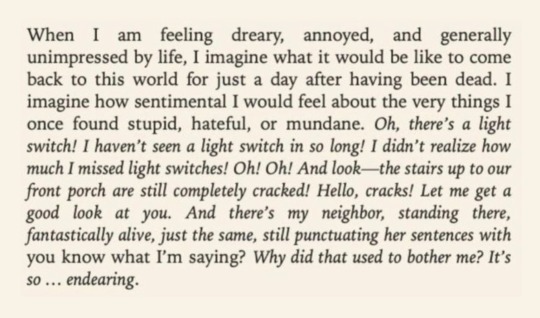
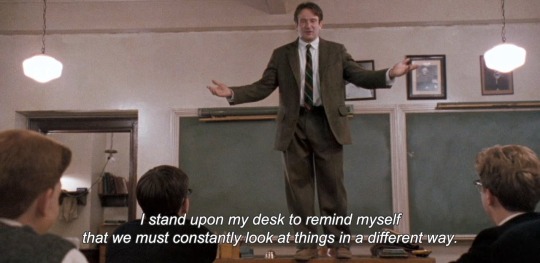


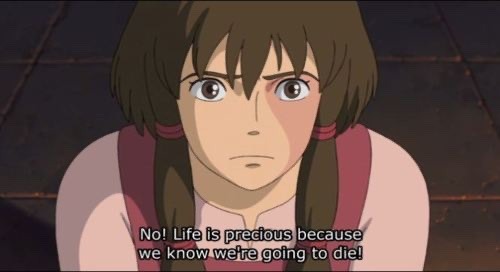
life may be sad, but it’s always beautiful.
the son of neptune, rick riordan / encyclopedia of an ordinary life, amy krouse rosenthal / dead poets society (1989) dir. peter weir / romain gary / @arthoesunshine on tumblr / tales from earthsea (2006) dir. goro miyazaki
#on life#on mortality#web weaving#literature#quotes#parallels#art parallels#literary parallels#web weave#book quotes#poetry#rick riordan#amy krouse rosenthal#dead poets society#romain gary#on gratitude#studio ghibli#hayao miyazaki
2K notes
·
View notes
Text
Everyone tries to compare the characters from TBOSBAS to Katniss and Peeta, because we like to try and draw literary parallels & analyze and find meaning where there may or may not be. And I feel like that kind of detracts from all the characters. We try to fit them in a box by saying “so-and-so is just like so-and-so!” When in reality all the characters are so drastically different. Sure, Peeta and Lucy Gray were the performers. Sure, Lucy Gray and Katniss were the singing mockingjays from the seam. Sure, Sejanus and Katniss both pushed against the Capitol control. Sure, Jessup and Peeta were the gentle protectors, who got hurt and needed nursed. We could go on and on and on, but (to me at least) it feels like trying to shove puzzle pieces together that don’t fit but still make up part of the same picture. Yeah there’s similarities, but the differences seem to outweigh them, so saying they’re parallels for each other just doesn’t seem fair to the complexities of their characters. It strips them of their background and the meaning and impact that they serve in their individual stories. I think we see the few nods and foreshadowing Collins throws at us for the original trilogy, and we immediately want to say everything is symbolic of each other, because history and art repeat themselves, & perhaps the idea of Snow reliving everything he went through when he was 16 is a satisfying twist for a corrupt character. But the truth is it is its own story.
HOWEVER- I’d still like to offer my own spin/parallel, just for shits & giggles.
I don’t think I’ve seen anyone mention how similar GALE is to SNOW. Again, far from a perfect fit, but there’s a lot about Snow and Lucy Gray’s story that reminds me of Gale and Katniss.
Gale seems to view Katniss as belonging to him; he’s possessive, and jealous of Peeta. He wants Katniss where he knows she’s safe. He is the cage, and she is the bird. Just like Snow is Lucy Gray’s cage, not wanting her to be free, but rather his. In control, belonging to him, and jealous of even the idea of another man or thing in Lucy Gray’s life (man gets jealous of a fucking goat, thinking it could be a person, let alone Billy Taupe). Additionally, despite Snow and Gale seeming to be on completely opposite sides of the spectrum (Snow is 100% for the Capitol, & Gale is 100% against the Capitol), they seem to value the same things. They want power. They want control. They want attention and recognition. Gale goes searching for that in the form of joining the rebellion and it’s highest ranks. He helps develop and plan bombs with little to no regard of the civilians they might kill, literally telling Katniss that it’s a price worth paying, an eye-for-an-eye type thing. He buddies up with President Coin (who, we could say, for parallel sake, represents evil & tyranny and totalitarianism, like Dr. Gual). Snow does it in the way of sucking up to anyone and everyone he can (Dr Gual, Mr Plinth) in the name of gaining positive recognition & money (or whatever else he might want) & constantly playing politics. He also shows little regard over the deaths of others. He kills Bobbin, and doesn’t seem haunted by that whatsoever, just sees it as a stain on his name. When faced with the possibility of having to open fire on the civilians of district 12 when they show anger at a hanging, his first thought is “do I remember how to shoot a gun?” and not “I don’t want to kill people”. Both of them fawn over a girl who is quite clearly not theirs, nor anything close to a “perfect match”.
By no means am I saying Gale is as bad as if not worse than Snow; we don’t know Gale’s inner thoughts and workings, and he does seem to act out of the kindness of his heart & show selfless qualities, and he’s not nearly as controlling and possessive when it comes to Katniss as Snow is to Lucy Gray (at the end of the day, Gale cares about Katniss being happy- Snow cares about Lucy Gray being his). But I think the comparison is interesting to consider regardless, and I haven’t seen anyone talk about it. :)
#the hunger games#the ballad of songbirds and snakes#tbosbas#tbosas#spoilers#katniss everdeen#peeta mellark#gale hawthorne#coriolanus snow#lucy gray baird#literary parallels#character comparison#analysis
40 notes
·
View notes
Text



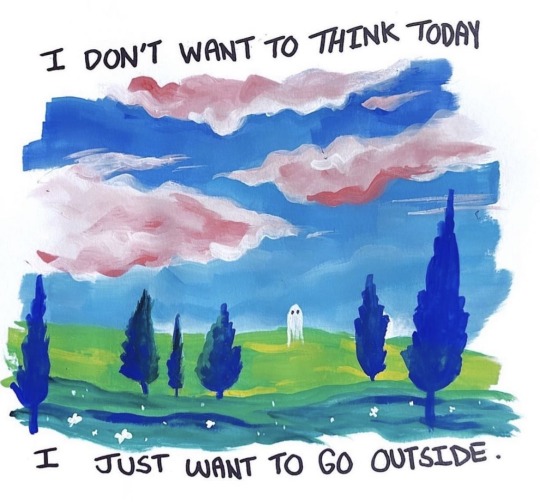


Ocean Vuong, On Earth We’re Briefly Gorgeous // Alison Pelegrin, from “Collect for the Days of My Youth,” Waterlines: Poems // @sunsbleeding // Doreen Valiente // Stanley Plumly
#parallelism#parallels#literary parallels#web weaving#ocean vuong#on earth we're briefly gorgeous#alison pelegrin#doreen valiente#stanley plumly#dark academia#light academia#classic literature#literature#books & libraries#english literature#romantic academia#dark aesthetic#chaotic academia#lit
2K notes
·
View notes
Text
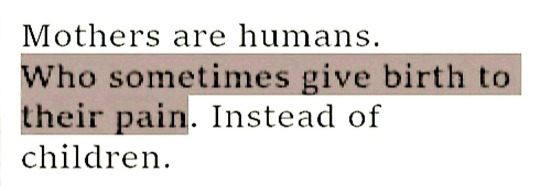
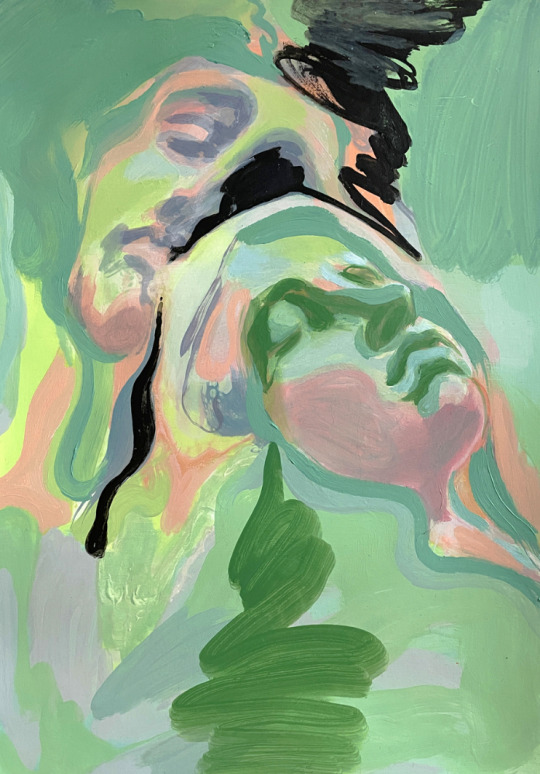
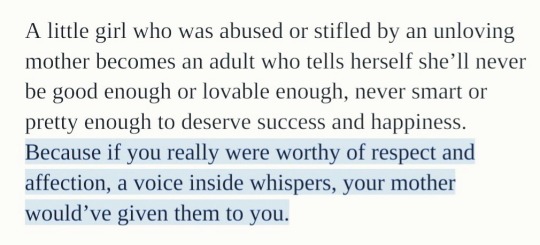


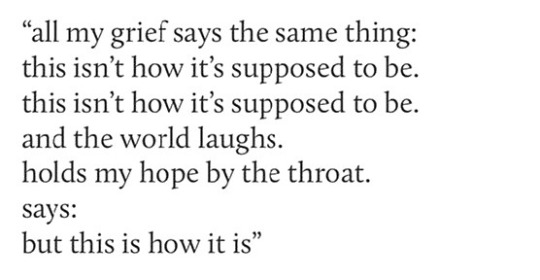

the mother myth
Nayyirah Waheed, Salt, 2013 // Amy Beager, Simmer II, 2021 (acrylic and oil on paper) // Susan Forward, Mothers Who Can't Love: A Healing Guide for Daughters (paraphrased) // loveryborxo, Into The Wall // Joan Tierney, The Elektra Complex // Fortesa Latifi, The Truth About Grief // Ninn Salaün
#web weaving#web weave#literary parallels#comparatives#quotes#on mothers#mothers#on parents#abusive parents#mean parents#parental abuse#abusive mothers#childhood trauma#dysfunctional childhood#rough childhood#unloved#narcissistic abuse#unloving#toxic#verbal abuse#dysfunctional family#dysfunctional parents#dysfunctional families#bad moms#quote#enabler#enabling#emotional abuse#inherited trauma#abuser
932 notes
·
View notes